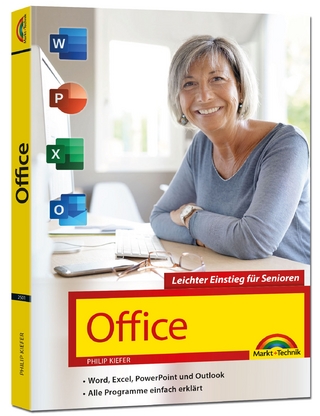
Studying the Novice Programmer
Lawrence Erlbaum Associates Inc (Verlag)
978-0-8058-0002-9 (ISBN)
- Titel ist leider vergriffen;
keine Neuauflage - Artikel merken
Contents: Part I:Early Work S. Papert, C. Solomon, Twenty Things to do With a Computer. S. Papert, Teaching Children Thinking. Part II:Transfer. A. M. Howe, P. M. Ross, K. R. Johnson, F. Plane, R. Inglis, Teaching Mathematics Through Programming in the Classroom. M. C. Linn, J. Dalbey, Cognitive Consequences of Programming Instruction. D. M. Kurland, R. D. Pea, A Study of the Development of Programming Ability and Thinking Skills in High School Students. R. E. Mayer, J. L. Dyck, W. Vilberg, Learning to Program and Learning to Think: What's the Connection? Part III:Learning Programming Concepts R. E. Mayer, The Psychology of How Novices Learn Computer Programming. R. Samurcay, The Concept of Variable in Programming: Its Mean- ing and Use in Problem Solving by Novice Programmers. J. M. Hoc, Do We Really Have Conditional Statements in our Brains? E. Soloway, J. Bonar, Cognitive Strategies and Looping Constructs: An Empirical Study. H. Kahney, What Do Novice Programmers Know About Recursion? C. M. Kessler, J. R. Anderson, Learning Flow of Control: Recursive and Iterative Procedures. D. N. Perkins, C. Hancock, R. Hobbs, F. Martin, R. Simmons, Conditions of Learning in Novice Programmers. Part IV:Difficulties, Misconceptions and Bugs. B. Du Boulay, Some Difficulties of Learning to Program. R. T. Putnam, D. Sleeman, J. A. Baxter, L. K. Kuspa, A Summary of Misconceptions of High School Basic Programmers. D.M. Kurland, R.D. Pea, Children's Mental Models of Recursive Logo Programs. J. Bonar, E. Soloway, Pre-Programming Knowledge: A Major Source of Misconceptions in Novice Programmers. J. C. Spohrer, E. Soloway, E. Pope, Goal/Plan Analysis of Buggy Pascal Programs. J. C. Spohrer, E. Soloway, Novice Mistakes: Are the Folk Wisdoms Correct? Part V:Designing Programming Environments N. Cunniff, R.P. Taylor, J.B. Black, Does Programming Language Affect the Type of Conceptual Bugs in Beginner's Programs? A Comparison of FPL and Pascal. B. DuBoulav, T. O'Shea, J. Monk, The Black Box Inside the Glass Box: Presenting Computing Concepts to Novices. M. Eisenstadt, M. Brayshaw, An Integrated Textbook Video and Software Environment for Novice and Expert Prolog Programmers. A.A. diSessa, H. Abelson, BOXER: A Reconstructible Computational Medium.
| Reihe/Serie | Interacting with Computers Series |
|---|---|
| Verlagsort | Mahwah |
| Sprache | englisch |
| Gewicht | 975 g |
| Themenwelt | Mathematik / Informatik ► Informatik |
| ISBN-10 | 0-8058-0002-6 / 0805800026 |
| ISBN-13 | 978-0-8058-0002-9 / 9780805800029 |
| Zustand | Neuware |
| Haben Sie eine Frage zum Produkt? |
aus dem Bereich


